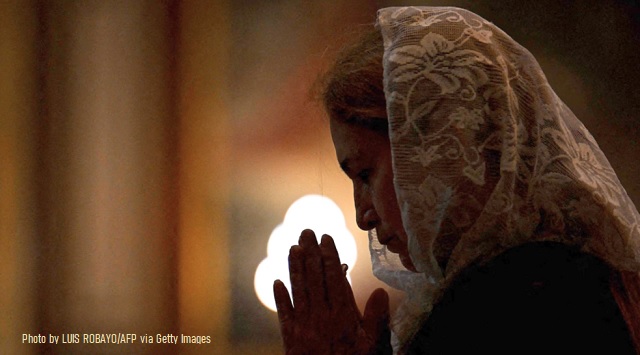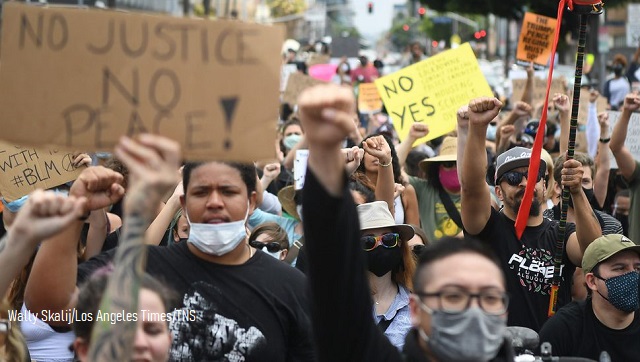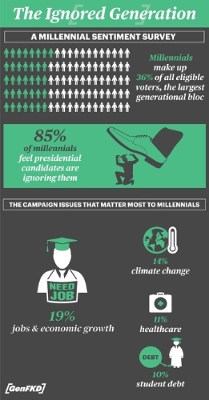Shocker: Gen Z’s Support for Same-Sex Marriage Falls Precipitously

Gen Z is said to be the most LGBTQ generation in American history, but a new poll shows young people’s support for a pillar of the sexual revolution has fallen precipitously.
Gen Z’s support for same-sex marriage has plummeted by 11 percentage points in two years, according to a new survey released last Thursday by the American Enterprise Institute’s Survey Center on American Life. “At one time, the issue of same-sex marriage sharply divided Americans by age, with younger adults expressing the most intense support and older Americans far more opposed,” states the survey. “There is some indication that this generational gap is contracting, with Gen Z adults expressing lower support for same-sex marriage than they once did.”
Gen Z now supports same-sex marriage by a 69% margin, but “[a]s recently as 2021, eight in 10 (80 percent) Gen Z adults reported supporting same-sex marriage,” the poll notes. “There is no evidence of a similar drop among any other generation.”
America’s youngest generation, Gen Z is defined as those born since 1997. The Supreme Court discovered the “right” to same-sex marriage in the Constitution only in 2015’s Obergefell v. Hodges decision. Gen Z would be the generation most likely to have been raised by a same-sex married couple.
“Today, Gen Z adults are not much more supportive of same-sex marriage than are baby boomers,” says the poll.
In fact, Gen Z is less likely to support same-sex marriage than their older siblings, the millennials (those born between 1981 and 1996). The survey found 73% of millennials back redefined marriage, compared with 69% of Gen Z, 65% of Generation X, and 61% of Baby Boomers.
Overall, 66% of Americans support same-sex marriage, while 31% somewhat (13%) or strongly (18%) oppose redefining marriage, according to the survey.
The numbers came as a surprise even to those who study the subject intently. The often-erudite Brad Wilcox, professor of Sociology at the University of Virginia, replied with one word: “Whoa.”
“I didn’t have ‘Gen Z supporting same-sex marriage less than Millennials’ on my 2023 bingo card,” said another commentator. Bloomberg columnist Matthew Yglesias acknowledges that “we now have a good amount of evidence that Zoomers are gonna be more conservative than Millennials” but writes off the same-sex marriage finding as a “statistical fluke.”
Yet the poll would fit with other polls showing the LGBTQ agenda losing support:
- The percentage of Americans who believe same-sexual relationships are “morally acceptable” fell by 7% this year, the largest decrease of any of the moral issued posed by Gallup pollsters in their annual Values and Beliefs poll, released in June.
- Most Americans do not see “a married gay or lesbian couple raising children together” as “completely acceptable” (47% do), and even fewer believe an unmarried same-sex couple should raise a child (41%), the Pew Research Center found in September.
- Last year, the left-of-center Public Religion Research Institute found a massive public opinion shift against allowing people who identify as transgender from using the restrooms of the opposite sex. “Americans are 17 percentage points more likely to favor” laws requiring the two sexes to use separate restrooms “today than they were in 2016, when the question was first asked,” according to PRRI.
Gen Z’s reduced support for same-sex unions does not come from their rejection of homosexuality; younger Americans are the most likely to say they identify as something other than heterosexual. Roughly 3% of all Americans identify as gay or lesbian, but 23% of Gen Z adults identify as LGBTQ — four times higher than Generation X. A whopping 31% of Gen Z women identify as lesbian, bisexual, or “something else,” the study states.
That sexual “fluidity” impacts Gen Z’s left-leaning politics, AEI said. “Sexual identity is strongly associated with political ideology, especially among younger Americans. Young liberals are far more likely than political moderates or conservatives to identify as something other than heterosexual,” the study notes. “Nearly half (48 percent) of liberal Gen Z women and 29 percent of liberal Gen Z men identify as gay or lesbian, bisexual, or something else. Just over half (51 percent) of liberal Gen Z women identify as heterosexual or straight, compared to 69 percent of liberal Gen Z men.”
Politics also impacts one’s view of whether same-sex attraction is a choice: 67% of liberals believe sexual attraction is innate, inborn, and immutable, while 51% of conservatives say environmental factors hold the greatest influence over sexual preference. Most Gen Z women (54%) say sexual orientation is fixed and genetic, compared with just over one in three (38%) of Gen Z men.
Experts cautioned that the surface-level numbers do not explain the reasons that moved Gen Z’s hearts.
“There is really no way to tell from these data why their support has declined,” Dr. Jennifer Roback Morse, founder and president of The Ruth Institute, told The Washington Stand. “It is possible that this is not uniquely about declining support for same-sex marriage: It could just be declining support for marriage itself. No firm conclusions are possible, based on what we see here.”
AUTHOR
Ben Johnson
Ben Johnson is senior reporter and editor at The Washington Stand.
EDITORS NOTE: This Washington Stand column is republished with permission. All rights reserved. ©2023 Family Research Council.
The Washington Stand is Family Research Council’s outlet for news and commentary from a biblical worldview. The Washington Stand is based in Washington, D.C. and is published by FRC, whose mission is to advance faith, family, and freedom in public policy and the culture from a biblical worldview. We invite you to stand with us by partnering with FRC.




